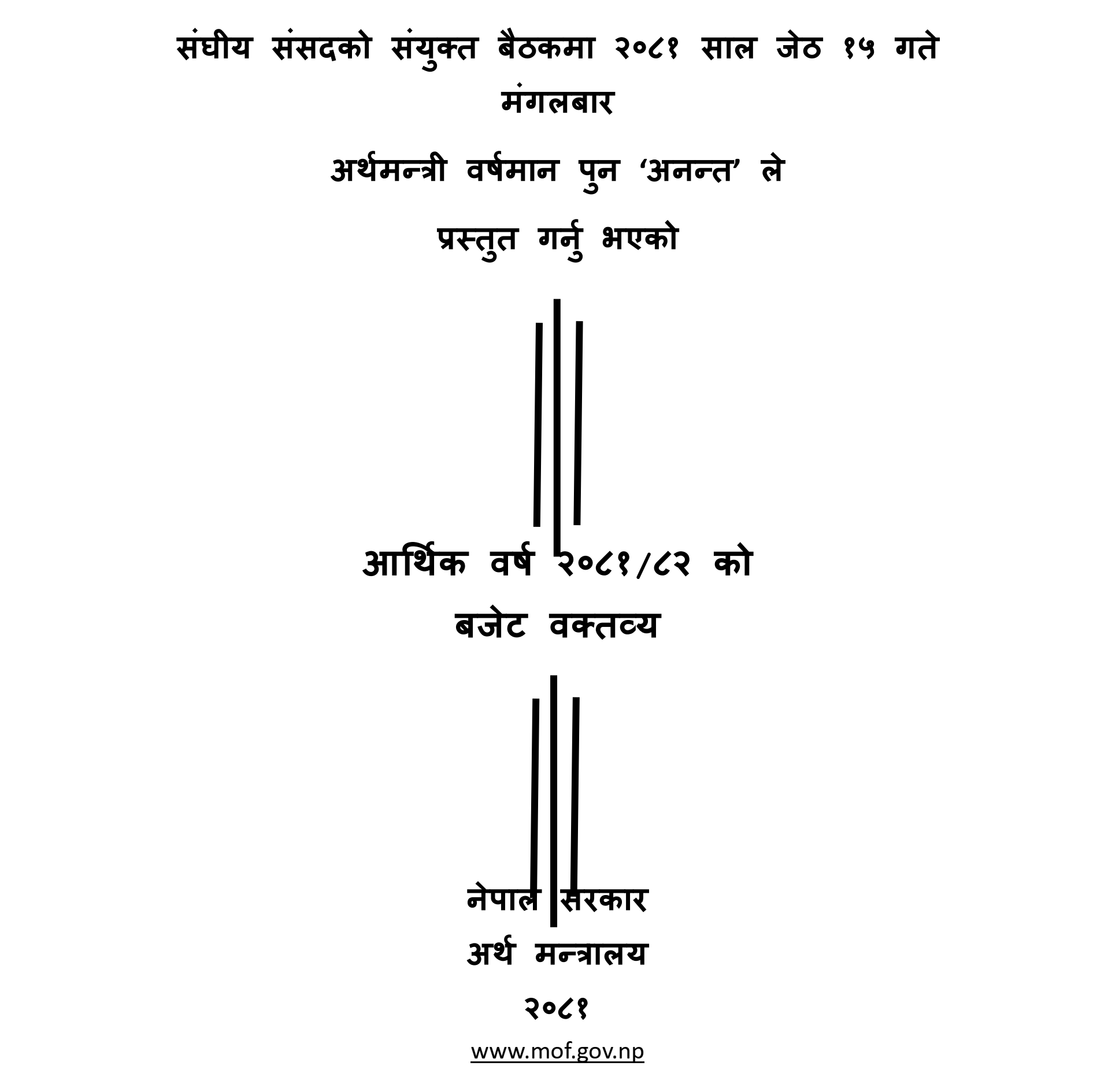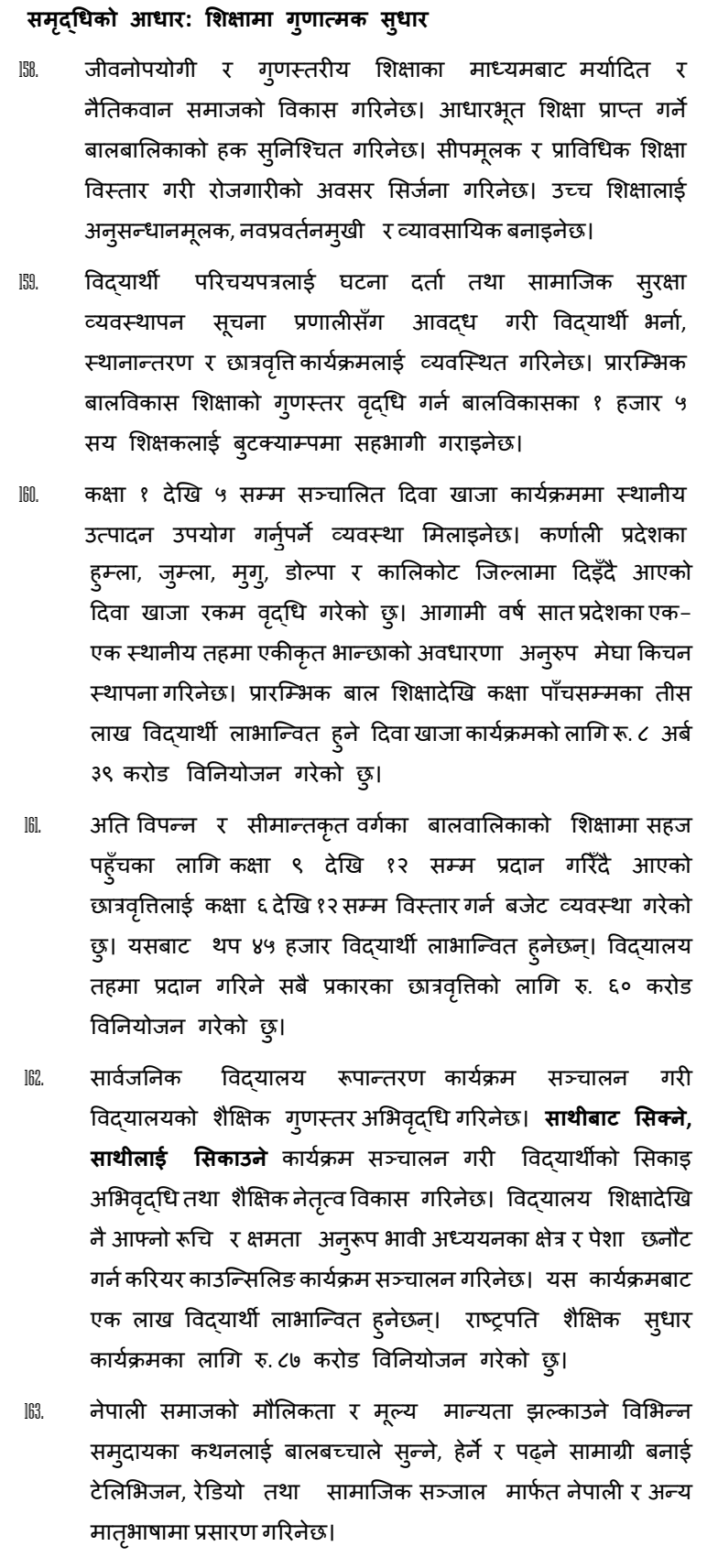
Nepal's Education Budget for the Fiscal Year 2081-2082:
Nepal's government has unveiled an ambitious education budget for the fiscal year 2081-2082, aiming to foster a dignified and moral society through life-useful and quality education. This comprehensive plan ensures the right of children to basic education, expands skill-based and technical education to create employment opportunities, and makes higher education more research-oriented, innovative, and professional. Here’s a detailed breakdown of the key initiatives and allocations:
Ensuring Basic Education for All
The budget emphasizes ensuring every child's right to basic education. To enhance early childhood education quality, 1,500 child development teachers will undergo intensive boot camps. Additionally, a student ID card system will be linked with incident registration and social security management to streamline student registration, transfer, and scholarship programs.
Midday Meal Program
In an effort to improve nutrition and education quality, local produce will be used in the midday meal program for classes 1 to 5. The amount allocated for midday meals in the Karnali province districts of Humla, Jumla, Mugu, Dolpa, and Kalikot has been increased. The introduction of Megha Kitchens will further expand this initiative, benefiting around 300,000 students from pre-primary to class five, with a budget allocation of NPR 8.39 billion.
Expanding Scholarship Programs
To enhance access to education for underprivileged and marginalized groups, the scholarship program currently available for classes 9 to 12 will be extended to include classes 6 to 12. This initiative will benefit an additional 45,000 students, with a budget of NPR 600 million allocated for all school-level scholarships.
School Transformation and Career Counseling
The government plans to enhance school quality through the School Transformation Program, focusing on peer learning and teaching initiatives. Career counseling programs will be introduced to help students choose future fields of study and professions based on their interests and abilities, benefiting 100,000 students. The President's Educational Reform Program will receive NPR 87 crore.
Cultural and Moral Education
To reflect the originality and values of Nepali society, statements from different communities will be broadcasted in Nepali and other mother tongues through various media channels, aimed at enriching children's cultural and moral education.
Infrastructure Development
The budget includes constructing water supply and toilet facilities in 500 schools, prioritizing backward areas and communities. Additionally, 1,000 disabled-friendly, gender-sensitive, and safe classrooms will be built, with a budget of NPR 2.5 billion.
Technical and Higher Education
Technical schools will be mapped based on labor market demand to produce skilled technical manpower in high-demand sectors. The Dalit community will benefit from poor and needy scholarship programs for technical higher education, with NPR 1.59 billion allocated for technical education.
Medical Education and Higher Studies
The budget focuses on maintaining the sustainability of government investment in medical education scholarships for target groups. Subsidized educational loans will be provided for higher education studies through a revolving fund. Medical colleges in Pokhara, Bardibas, Butwal, and Surkhet will be established, and feasibility studies for medical colleges in Udaipur, Morang, Parsa, and Chitwan will be conducted.
University Enhancements
Tribhuvan University will be developed as an academic center of excellence, with research centers facilitating knowledge and technology transfer. The University Grants Commission will be restructured for better coordination, grant management, quality assurance, and accreditation. The budget for higher education is set at NPR 21.45 billion.
Science and Technology Initiatives
The period from 2081 to 2099 will be implemented as the Science and Technology Decade. Madan Bhandari Science and Technology University and Vidushi Yogamaya Ayurveda will be established. The Ministry of Education, Science, and Technology will receive NPR 2 trillion 3 billion 66 crores for these initiatives.
Conclusion
Nepal’s education budget for the fiscal year 2081-2082 reflects a robust commitment to developing a moral and educated society. With significant investments in early childhood education, midday meals, scholarships, school infrastructure, technical education, higher education, and science and technology, the government aims to create a well-rounded, skilled, and knowledgeable workforce ready to meet future challenges.







